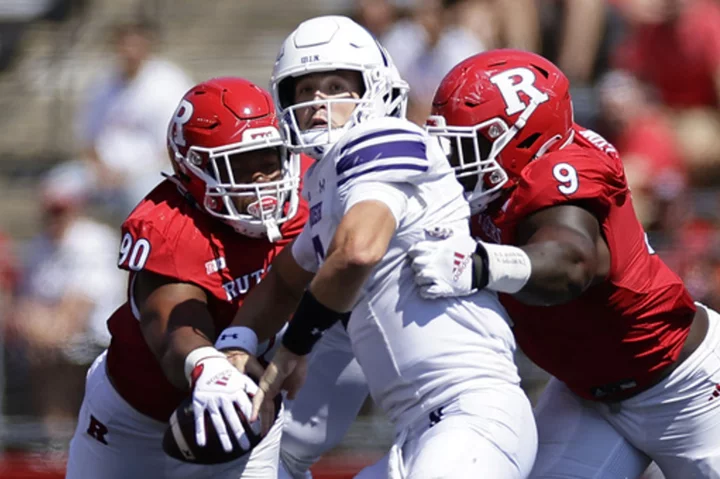Maybe it's time to get rid of the metric and imperial systems and start describing height in terms of wheels of cheese. Any takers?
Oh, Germany—the land of Oktoberfest, Christmas markets, and super literal compound words. Granted, one of these things is not like the others, but it’s precisely that one we’ll be diving into today. These 20 German compound words are so literal they seem made up. (But then again, isn’t all language made up?)
1. Glühbirne
Literally: “glowing pear”
English translation: “lightbulb”
This word combines glüh, meaning “glow,” with Birne, or “pear”—and what are lightbulbs if not upside-down electric pears? Of course, lightbulbs nowadays come in many shapes and sizes, but if you think of the stereotypical lightbulb shape in cartoons (or on top of your head whenever you have a good idea), it’s easy to see where the Germans got their inspiration.
2. Antibabypille
Literally: “anti-baby pill”
English translation: “contraceptive pill”
We love something that does what it says on the tin (or packet) and the German contraceptive pill does just that. Of course, the English word contraception also means “prevention of babies from being made,” but in a less direct way.
3. Nacktschnecke
Literally: “naked snail”
English translation: “slug”
Who knew slugs were such advocates for naturism? This word might make more sense if a slug were the default mollusk and a snail were a “clothed slug,” but perhaps it's a “what came first, the chicken or the egg?” scenario. Additional fun fact: Sticky buns are known as Schnecken in German for their resemblance to snails.
4. Dreikäsehoch
Literally: “three-cheeses-high”
English translation: "tiny tot"
This word came into common parlance in the 18th century, back when cheese came in a standard-sized wheel and pretty much everyone knew that size. Three-cheeses-high is pretty short, so this word is typically used to tease a small child who is acting older than their age (or is just being a little cheeky) in the same way that we might use “squirt” in English. Much like its English counterparts, Dreikäsehoch is falling into disuse, so it’s up to us to bring it back.
5. Abendbrot
Literally: “evening bread”
English translation: “dinner”
Although this word can be used interchangeably with Abendessen (“dinner”), in its most traditional sense, Abendbrot actually refers to the century-old practice of having a selection of bread with cheeses, cold cuts, pickles, and salad for dinner. Unlike a lot of the Western world where it’s commonplace to have a sandwich or salad for lunch and a sit-down hot meal for dinner, Germans traditionally do it the other way around.
6. Baumwolle
Literally: “tree wool”
English translation: “cotton”
Whoever came up with this word obviously ignored the fact that cotton usually comes from shrubs and not trees, but even so, it’s very cute—and brings to mind cotton plants as tiny little sheep clustered around your feet.
7. Handschuhe
Literally: “hand shoes”
English translation: “gloves”
This term—a favorite on the internet among literal German translations—begs the question: Why are gloves “hand shoes” rather than shoes being “feet gloves”? If you want to be more specific with your glove type, just stick the material or purpose on the front and extend your compound noun. e.g. Gummihandschuhe (“rubber gloves”), Gartenhandschuhe (“gardening gloves”).
8. Fingerhut
Literally: “finger hat”
English translation: “thimble”
Sticking with the hands, Fingerhut, the German word for “thimble” (and also for “foxgloves”), translates to “finger hat.” No prizes for guessing how that came to be. (Although Helm, the German word for “helmet,” feels like a more appropriate choice than Hut.) These days, a thimble is often worn on the middle finger, but the English word was derived from thumb plus -le, which has its roots in the Old Norse word þumall meaning “the thumb of a glove.” The Oxford English Dictionary theorizes that “perhaps a leather thumbstall was the earliest form of thimble,” noting that “metal thimbles were apparently introduced in the 17th cent[ury].”
9. Bandsalat
Literally: “tape salad”
English translation: “tape spaghetti”
Here’s one for the people who can still remember the days of cassettes and videotapes. If your player never malfunctioned and scrambled up your favorite tape, you were one of the lucky ones. If it did, you were left with a lovely dish of Bandsalat. According to Collins Dictionary, this term means something like “tangled tape,” but googling around reveals a food-related English translation that’s as delightful as the original: “tape spaghetti.”
10. Trinkgeld
Literally: “drink money”
English translation: “tip”
Something about a translation like “drink money” brings to mind the image of a medieval tavern where everyone is drinking beer out of leather tankards and paying in little gold coins (maybe even while listening to a princess singing about how much she longs to be free). In the present day, tips are voluntary in Germany and in direct correlation to how good you felt your service was. People often only round up to the nearest Euro or add on a small amount.
11. Backpfeifengesicht
Literally: “cheek whistle face”
English translation: “a face asking to be slapped”
There are layers to this German insult. Backpfeife is already a compound noun that means “a slap to the face.” As in, a slap so hard that it makes a whistling sound. Combined with Gesicht (“face”), you therefore have “a face that’s asking to be slapped.” Ideally, this wouldn’t be the word you’d use the most from this list, but perhaps you have a mortal enemy this term is perfect for—who are we to judge?
12. Nashorn
Literally: “nose horn”
English translation: “rhinoceros”
Here’s another adorable German animal word for you, but this time, it’s referring to one you probably won’t find in your garden. Although this seems very on the nose (pardon the pun), the English rhinoceros is actually also derived from the Greek words for “nose” (rhī́s) and “horn” (kéras). The more you know.
13. Wunderkerze
Literally: “wonder candle”
English translation: “sparkler”
Waving around sparklers as a kid definitely led to a sense of wonder—and there’s something about the word Wunderkerze that really encapsulates that childhood magic much more than the simple sparkler does.
14. Kopfkino
Literally: “head cinema”
English translation: roughly “imagination”
Do you have a super vivid imagination? Maybe you like playing through fantasy scenarios before you go to sleep, maybe you’re an avid daydreamer at your desk. Well, the Germans have a word for this—it’s your very own “head cinema.” This can also be used for things you don’t want to be seeing: say, someone tells you a story full of TMI and, try as you might, you can’t stop visualizing it. That’s your Kopfkino at work.
15. Treppenwitz
Literally: “staircase wit”
English translation: untranslatable/the same
If you’ve ever thought of the perfect comeback after a conversation has already finished, that would be your Treppenwitz. It’s unclear why stairs have to be involved—perhaps “doorway wit” would be more universally applicable—but either way, it aptly sums up your brain coming to your rescue far too late. Fun fact: there’s a French expression for this too: l’esprit d’escalier.
16. Extrawurst
Literally: “extra sausage”
English translation: “special treatment”
Germans love sausages—both in their cuisine and in their language. The concept of the Extrawurst dates back to the Baroque period, when sausages were a treat for impoverished people. Receiving an extra sausage was therefore the equivalent to getting special treatment. The expression eine Extrawurst verlangen (“to demand an extra sausage”) is typically used in a disapproving way.
17. Drachenfutter
Literally: “dragon fodder”
English translation: “apology gift”
It’s probably not the best idea to call your angry significant other a “dragon,” but if they are blazing with fury and you wish to give a gift to placate them, that peace offering would be what the Germans call Drachenfutter.
18. Drahtesel
Literally: “wire donkey”
English translation: “bicycle”
The more common name for a bicycle is Fahrrad, but Drahtesel is typically used in a joking way to refer to those creaky secondhand bikes that are dependable but always look like they’re one speed bump away from completely falling apart. (That might be why Fahrrad is sometimes translated as a “boneshaker.”) It also offers an amusing antithesis to Stahlross, another German bicycle synonym which literally translates to “steel horse.” Big Kenergy there.
19. Schnapsidee
Literally: “booze idea”
English translation: “foolish idea”
At its core, the word Schnapsidee relates to those wacky ideas you dream up when you’ve had just a tad too much to drink. You know, when you suddenly think you can fly or when you think it’d be a phenomenal idea to call an ex. What can go wrong? (Turns out, a lot.) Schnapsidee can also be used for ludicrous sober ideas. Think little children that come up with adorably absurd schemes or your spontaneous friend who quits their job and becomes a basket maker, despite having never woven a basket in their life.
20. Schildkröte
Literally: “shield toad”
English translation: “turtle”
Let’s finish up with another animal. Whether or not turtles really look anything like toads is perhaps debatable, but there is something very sweet about thinking of them as little battle-ready amphibians. And in true German form, a tortoise is a Landschildkröte. Fun fact: An old English word for a tortoise is shellpad, which dates back to the 16th century and is derived from the Low German and Middle Dutch words for “shield” and “toad.”
This article was originally published on www.mentalfloss.com as 20 Super Literal German Compound Words.









